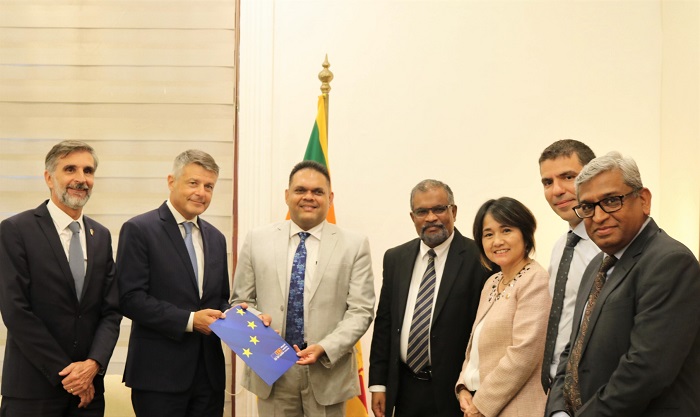
The Government of Sri Lanka and the World Bank, European Union (EU) and Agence Française de Développement (AFD) recently signed financing agreements to help strengthen Sri Lanka’s management of public finances.
According to the Delegation of the European Union to Sri Lanka, the grant of EUR 9.8 million for Public Finance Management aims to support improving economic governance, transparency, and accountability in how public finances are spent.
“Weak management of public finances contributed to Sri Lanka’s economic crisis, so it is crucial to strengthen core public finance institutions and systems to shore up the economic recovery and get the country on a sustainable growth path,” said Chiyo Kanda, World Bank Country Manager for Maldives, and Sri Lanka. “This project will leverage technology to develop and scale up the government’s nascent e-procurement system (e-GP) and enhance the institutional capacity of the National Audit Office of Sri Lanka, both important steps towards enhancing efficiency and transparency in public procurement and external audits.”
The public sector is the largest purchaser of goods, works, and non-consulting services in Sri Lanka’s domestic market. Procurement of these goods and services is often delayed due to cumbersome and outdated procedures and processes, limited understanding of market approaches, and lack of capacity and empowerment of procurement decision-makers.
“In the absence of digitized procurement tools and an efficient e-procurement system, Sri Lanka misses out on opportunities to leverage economies of scale and to monitor the efficiency and timeliness of procurement,” said HE Denis Chaibi, Ambassador of the European Union to Sri Lanka and the Maldives. “A strong and modernized public finance management system is vital for the country to mitigate the risk of crises in the future and to establish accountability and public trust in the system. The European Union—through the World Bank—is pleased to support institutional capacity and transparency in Sri Lanka’s procurement and audit, which will improve economic governance and aid Sri Lanka’s recovery.”
The project aims to strengthen the overall accountability framework by improving the performance of the National Audit Office of Sri Lanka in terms of stronger governance, greater accountability, and enhanced institutional capacity in areas relating to audit planning, quality assurance, staff capacity, engagement of citizens in the audit process, as well as in specialized audits such as procurement and environment audits. (NewsWire)
